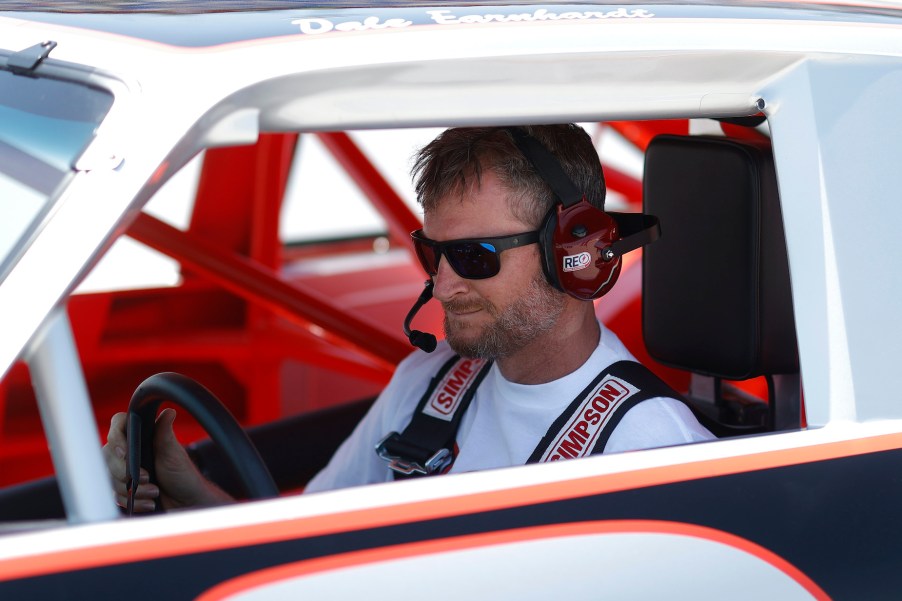
Dale Earnhardt Jr. ‘Never Really Loved’ Racing From the Pole Position During His NASCAR Career
Whether you’re specifically talking about NASCAR or just using a general figure of speech, pole position is generally considered as a positive. Starting from the inside spot of the first row, conventional wisdom dictates, lets a driver jump out to an early lead and dictate the terms of engagement. During his time on the stock car circuit, though, Dale Earnhardt Jr. did things a bit differently.
Although he couldn’t quite live up to the high standards of his famous father, Junior still had quite the NASCAR career. For all his success, though, he didn’t really love being at the front of the pack.
Dale Earnhardt Jr. had a respectable NASCAR career
From a cynical perspective, you could argue that Dale Jr.’s racing success stemmed directly from his last name. On the track, though, Earnhardt still proved to be a capable driver.
Despite his father’s NASCAR success, though, Junior didn’t always seem destined for racing success. His early experiences behind the wheel didn’t exactly inspire confidence; on a professional level, he earned an automotive degree and started working at the family dealership. One painful reality, however, would eventually change the course of motorsports history.
While Earnhardt Jr. never had the greatest relationship with his dad, he eventually realized that racing provided them with a common ground. He then climbed into the driver’s seat and, from there, the rest is history.
Although he didn’t rewrite NASCAR’s record books, Junior still won 50 races across both levels of competition. He also claimed two Busch Series titles and proved to be both a fan favorite and a commercial powerhouse.
Dale Earnhardt Jr. ‘never really loved’ racing from the front row
Even though he failed to win a Cup Series championship, Dale Jr. still knows a thing or two about racing success. One of his preferences, however, flies in the face of conventional wisdom.
“I never really put a lot of stock in [starting position],” Earnhardt explained on the I Am Athlete podcast. “Because it’s a 500 mile, typically a 500 mile, race. Lot of time to figure out how to get yourself toward the front.”
In a vacuum, that point makes sense; if qualifying position directly determined your success, there’d be no point to running the actual race. Junior, however, wasn’t done there.
“Sometimes I even liked qualifying [at the back of the grid] because I liked to move forward,” Earnhardt continued. “I never really loved qualifying on the front row because you’ve got all those guys behind you. The pressure, right? You can feel that energy. They’re chasing you, man. And you start there, so you gotta keep them there the whole time. You gotta keep them behind you the whole time. When you start at the back, you get to enjoy sort of working your way toward the front and climbing a mountain, if you will. And I always enjoyed that.”
Does pole position actually provide an advantage?
As mentioned above, pole position is traditionally viewed as an advantage. Earnhardt Jr., however, pushed against the grain with an interesting personal take. Which take, however, is the right one?
As with most things, it seems like the solution lies somewhere in the middle. Craig A. Depken, II, an economics professor at the University of North Carolina at Charlotte, looked at NASCAR data through 2005 to determine just how much pole position matters. He concluded that, given the parity of modern stock car racing, “the probability of the pole-sitter winning a particular race has declined considerably.” Earning the top spot on the grid, however, still provides a commercial advantage through name recognition, if nothing else.
While he might have articulated it in his own way, Earnhardt Jr. seems to have been onto something about pole position. Starting in the front row may seem like a dream scenario, but every driver knows what works best for them. After all, it’s how you finish, not how you start, that really matters.


